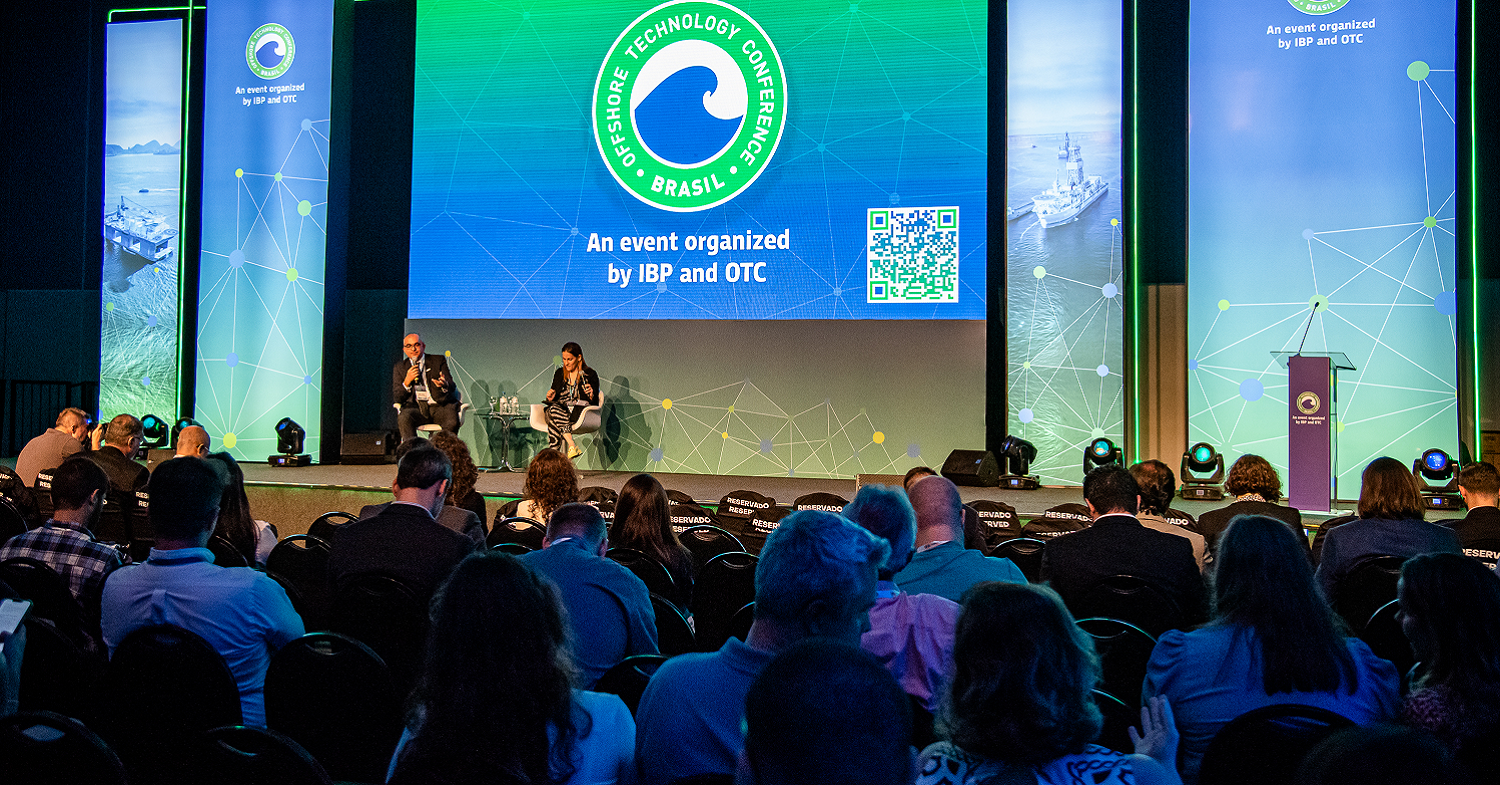The oil and gas sector showcases investments and projects aligned with the energy transition at OTC Brasil

Focused on the production of oil and gas, the O&G sector is also focusing on renewable projects, especially offshore wind power, which is pending regulatory frameworks
A promising market, capable of leading the energy transition, but which still depends on a legal framework, was the tone of the panel “Unlocking the potential for offshore wind in Brazil”, at OTC Brasil, in which representatives of the oil and gas sector pointed out Brazil as the ideal region for the development of these projects.
“It is important to emphasize that, in companies like Equinor, we compete for investment capital with other countries in the world and if this does not happen within a certain horizon, this capital can go to other countries,” said André Leite, Director of Offshore Wind for Latin America at Equinor.
“We see Brazil as a greenfield, an unregulated market. We had a decree, but we hope to have a more robust framework to provide more safety for the investments that will be required. We need a solid regulatory framework that offers safety to bring these investments to Brazil,” said Fernanda Scoponi, Senior Business Development Manager – Offshore Wind Energy at TotalEnergies.
Petrobras has reaffirmed its strategy of investing in offshore wind farms, mentioning a project under study off the coast of Rio Grande do Norte. Petrobras’ executive manager for renewables, Daniel Cleverson Pedroso, stressed the importance of the partnership with the state and universities and said that the first stage will be to obtain a permit for the area with Ibama.
Opportunities and challenges in the Brazilian oil and gas sector
The possibility of developing new areas, such as in the Equatorial Margin, is driving Petrobras’ efforts, while the offer of new blocks is raising interest in the next permanent offer cycles.
Otaviano da Cruz Pessoa Neto, general manager of technology and applied data for exploration at Petrobras, reinforced the company’s commitment to developing new areas and pointed to the equatorial margin as the main destination for the company’s Capex in this segment. “We are going to invest US$ 3 billion in exploration campaigns on the equatorial margin by 2027, with the drilling of 16 wells”.
TotalEnergies’ exploration manager for Brazil, Guyana and Suriname, Jacques-Antoine Dal, recalled that the company’s goal is to offer energy with fewer emissions, and Brazil is a key part of this strategy. “In Brazil, we have a multi-energy portfolio with deepwater oil production, solar and wind plants, refueling stations and research and development activities,” said Dal.
Marina Abelha, Superintendent of the National Petroleum, Natural Gas and Biofuels Agency (ANP) highlighted the availability of new areas in the cycles of the Permanent Offer to be held by the Regulatory Agency in December, especially in the Pelotas Basin. “All 132 sectors in the Pelotas Basin have received a declaration of interest statement”.
The Norway Case
Brazil and Norway must strengthen diplomatic and economic ties to lead the energy transition in the maritime sector, which today operates with around 90% of its capacity based on fossil fuels. The data was presented at the panel “Innovation Norway – Norway’s contributions to decarbonization for the maritime sector in Brazil”.
“There is a bill in Congress on the Fuel of the Future, which covers the aviation sector, but not the maritime sector, which creates an important gap. Norway has vast experience in low-carbon emissions in the maritime sector and strategic complementarities with Brazil,” said Valéria Lima, Executive Director of Downstream at the Brazilian Petroleum and Gas Institute (IBP).
Rafaela Guedes, Senior Fellow at the Brazilian Center for International Relations (CEBRI), who conducted a study on the energy transition for the maritime sector in partnership with the Norwegian Consulate, pointed out that the solution for decarbonizing this sector in Brazil will not be a sole one. “For Brazil, a very important route will be biofuels, which will not exclude, for example, the electrification of small short-distance vessels, especially in the Amazon. Diesel can make up almost 50% of the income of families in the region,” she pointed out.
Record audience
The first day of OTC Brasil registered a 32% increase in attendance compared to the last edition. More than 5,000 people visited the event’s stands and halls, compared to 3,800 at the 2019 edition.
OTC Brasil runs until Thursday in Rio de Janeiro. The 2023 edition has master sponsorship from Petrobras; platinum sponsorship from Shell and TotalEnergies; gold sponsorship from Ambipar, BP, Chevron, Equinor, ExxonMobil, Prio and RepsolSinopec Brasil; silver sponsorship from Enauta, Porto do Açu and TechnipFMC; bronze sponsorship from Corio Generation, Perbras, SBM Offshore, Tenaris, Tivit, Quorum Software and OceanPact; Decarbonization & Technology Arena sponsorship from Radix, ASME, TESS, GE, Huisman, Innovation Norway, PPSA, Bratecc, Shape and Wams; support as official airline operator from United Airlines; official carbon offset partnership from AMBIFY; ApexBrasil as the International Business partner; Blumar as the official tourism agency; B&T as the official foreign exchange broker; and partners such as Abimaq, Brazil-Texas Chamber of Commerce, RedePetro ES, SPE UNIFEI and Norwegian Energy Partners. The event also has the support of the Federal Government.
Service: OTC Brazil 2023
Date: October 24 to 26, 2023
Venue: ExpoMag, Rio de Janeiro
Information on the last available tickets here.